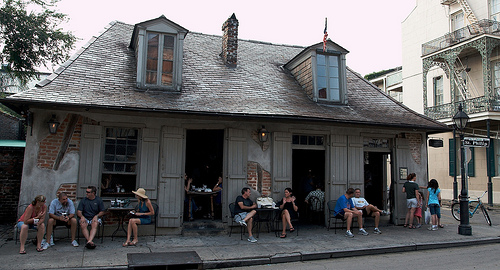 Understanding the history of a particular place can be an integral part of understanding it in the present. But for some travelers, many of those historical sites – museums, monuments, memorials, castles, cathedrals, and churches – that can tell us so much about the past, can also be a little, well….boring.
Understanding the history of a particular place can be an integral part of understanding it in the present. But for some travelers, many of those historical sites – museums, monuments, memorials, castles, cathedrals, and churches – that can tell us so much about the past, can also be a little, well….boring.
If old buildings and carefully curated exhibits don’t get you excited to learn about a place’s past – or if you’re just looking for a few possibilities outside the museum walls – consider a few other options. Food, drink, fashion, and music can also influence a country’s development, sometimes just as much as its government, religion or industry. If you’re looking for a few different ways to gain more insight into a place you’re visiting, think a bit outside outside the museum and get a bit more hands-on.
Farming, agriculture and food have all shaped the development of many countries. A lack of food has started revolutions. And when you taste a country’s traditional food, you learn even more about what life was once like for the common people of the time. Learn to cook a traditional dish, try a local delicacy, or visit a food museum.
In the past, people had far fewer options for what to drink; they drank what was local, with drinking culture developing to reflect to beliefs and customs of the times. While nowadays you can get nearly any drink anywhere around the world, drinking local and learning about a region’s drinking traditions can teach you quiet a bit about life in another era. Try a locally made beer or learn how sake, tequila, bourbon or port is made in its home country.
Beyond what people drank, where they drank can also be important to understanding life in a particular place at a particular time. Scope out a bar where one of your favorite writers drank, or join a literary pub crawl and you can learn more about the past as you enjoy your pint.
If sports are your passion, why not use them as a way to learn more about the culture of a place. In Italy, soccer is an important part of the country’s history, and learning the intricacies of the many rivalries between cities can open an another window into the diversity of culture between Italy’s many regions.
When it comes to celebrating history in a more exciting way, you can do no better than attending a festival or being in a country for an important holiday. This is where the past and present collide; you can experience the present moment while celebrating the past, with many locals happy to fill you on what the celebration is all about. Celebrate Bastille Day in France, ANZAC Day in Australia, or Las Fallas in Spain and you’re guaranteed to leave with a deeper knowledge of a country’s customs and beliefs.
And don’t discount the value of tours. Independent travelers often shun group tours, but a few hours with a guide can often be time well spent. You may gain access to places you couldn’t see (or wouldn’t notice) on your own, and you’ll learn more history and inside information in an hour with a guide than you would with several hours on your own. Plus, you can choose a tour that suits your interests, whether that be visiting haunted places on a ghost tour, tracing the footsteps of famous musicians on a music-themed tour, or sampling some of the city’s best eats on a food tour.
Photo by Martin Pilat
Author: Sean Keener